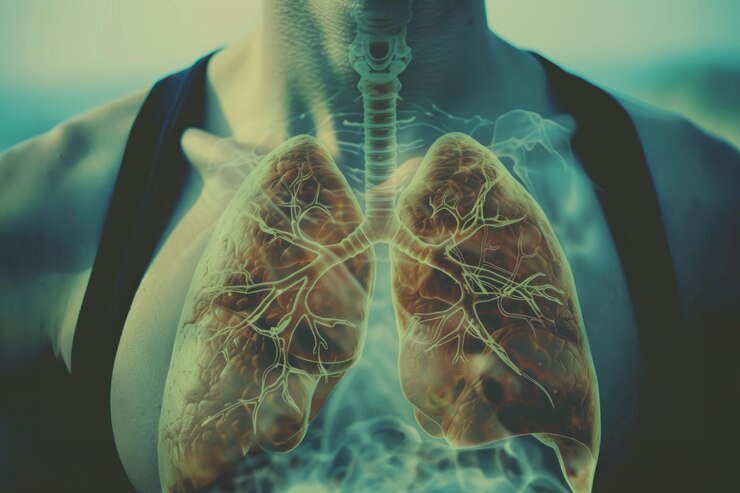Home / Respiratory Diseases
Respiratory diseases affect the lungs and other parts of the respiratory system, leading to breathing difficulties and other symptoms. Some common respiratory diseases include:
Asthma: A chronic condition characterized by inflammation and narrowing of the airways, causing wheezing, shortness of breath, coughing, and chest tightness.
Pneumonia: An infection that inflames the air sacs in one or both lungs, causing symptoms such as cough, fever, chills, and difficulty breathing.
Bronchitis: Inflammation of the bronchial tubes, which carry air to and from the lungs, leading to coughing, mucus production, and difficulty breathing.
Lung Cancer: A type of cancer that begins in the lungs and can spread to other parts of the body, often causing a persistent cough, chest pain, and difficulty breathing.
Pulmonary Fibrosis: A condition in which lung tissue becomes damaged and scarred, leading to stiffness in the lungs and difficulty breathing.
Pulmonary Embolism: A blockage in one of the pulmonary arteries in the lungs, usually caused by a blood clot, which can be life-threatening and cause sudden shortness of breath, chest pain, and coughing up blood.
Cystic Fibrosis: A genetic disorder that causes thick, sticky mucus to build up in the lungs and other organs, leading to respiratory infections and breathing difficulties.
Sleep Apnea: A sleep disorder characterized by pauses in breathing or shallow breathing during sleep, often leading to daytime fatigue and other health problems.

Tuberculosis (TB): A bacterial infection that primarily affects the lungs, causing symptoms such as cough, fever, weight loss, and night sweats.
Treatment for respiratory diseases varies depending on the specific condition and may include medication, oxygen therapy, pulmonary rehabilitation, and in severe cases, surgery. Prevention measures such as avoiding smoking, air pollution, and respiratory infections can help reduce the risk of developing respiratory diseases.
 Call Now Button
Call Now Button